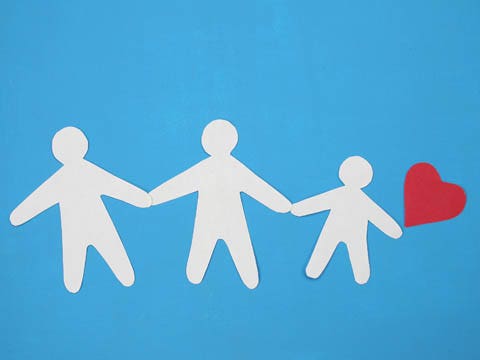How To Get A Man To Talk About The Future
The Power of Habit author on why men and women talk, think and act differently in relationships.

In the last decade, our understanding of the neurology of habit formation has been transformed. We've learned how habits work—and how to create good habits and change bad ones.
At the core of every habit is a neurological loop with three parts: A cue, which is a trigger for an automatic behavior to start unfolding; a routine, which is the behavior itself; and a reward, which is how your neurology determines whether to remember a habit for the future.
When it comes to relationships, the habit loop plays a huge role. How do you automatically communicate with your spouse, or your kids, or your co-workers, for instance? When you're on a date, what cues do you react to? What subconscious rewards does the person across the table crave?
A few years ago, researchers at Yale began examining an aspect of this question—in particular, they were curious how habits differ between men and women. For the last 30 years, everyone assumed that habit worked the same way in both genders. But as we learn more about how the brain works, we're understanding that, when it comes to habits, there are differences between genders.
At Yale, researchers began by examining people with profound habit dysfunctions. Many addictions, we know, are caused by habits that have gone awry, so the Yale scientists conducted brain scans of 30 cocaine addicts and 36 people who had the occasional glass of wine or beer. While inside an fMRI—a machine that can take pictures of the blood flow through brains as people think—subjects were shown photos of scenes that, in previous interviews, they had said were very stressful, or photos that researchers knew would trigger cocaine or alcohol habits.
The researchers' initial findings weren't surprising: as anticipated, the cocaine addicts showed greater brain activity in areas linked to addiction (which makes sense) and motivation (in other words, they were more motivated to use cocaine and alcohol). What was interesting, however, was how much the reactions differed between genders.
For women, exposure to stress-related cues triggered bad habit impulses. Seeing a photo of a child in potential danger, for instance, caused female addicts to crave a glass of wine or cocaine. Emotional cues seemed to be enormously powerful. Men, on the other hand, were much less affected by stress.
More relationships content from YourTango:
13 Mistakes Grown Men Don't Realize They Make That Annoy The Women They Love
The 20 'Golden Rules' Of Using Technology Wisely In A Relationship
4 Strangest Celebrity Family Relationships Ever
But when men saw visual or anecdotal drug-related cues—a photo of someone at a bar, or of a needle or line of coke—their habit centers were triggered. For women, those images had less power. One takeaway from this is that therapies should be different for men and women. Female addicts should be instructed in stress reduction techniques, while men—the findings suggest—may do better in a 12-step program.
So what does this mean for you the next time you're on a date? Well, to begin with, remember that men's habits are triggered by visual or anecdotal, as opposed to emotional, cues. Want to move the conversation to the topics of marriage and children? Show him photos of your niece and nephew or tell a story about a wedding you recently attended. This will serve as a cue to trigger his conversational routines. On the other hand, asking him to free-associate about his feelings regarding kids or commitment are likely not to trigger anything.
And since women are more sensitive to emotion-related cues, it's important to recognize that when certain emotions are triggered, there is an automatic routine likely lurking somewhere nearby. That explains, for instance, why a burst of excitement from a novel experience (like going to the opera for the first time on a date) or of energy from a meal (like a double espresso) can cause a male companion to suddenly look more handsome: the positive emotional cues of energy and excitement trigger automatic routines—in this case, upgrading your estimation of the guy sitting across the table. 15 Sparkly Summer Date Ideas
So, if you want to get to know a guy, do something that makes you feel excited and good about yourself, have a coffee, and then start telling him stories.
To learn more—including why some habits matter more than others, and what we've learned about how habits function within relationships, marriages and families, read The Power of Habit: Why We Do What We Do in Life and Business or visit http://www.ThePowerOfHabit.com.
YourTango may earn an affiliate commission if you buy something through links featured in this article.

